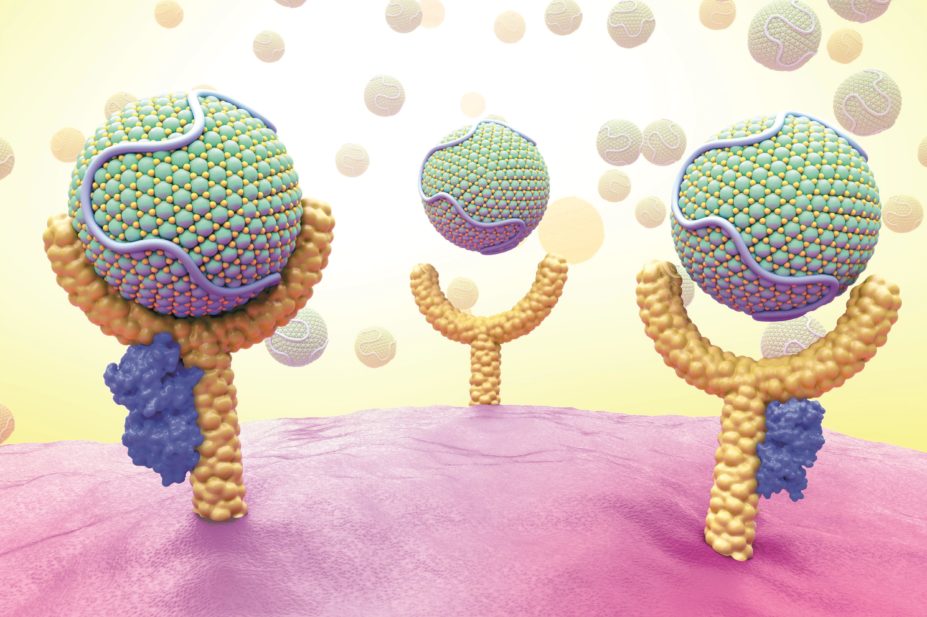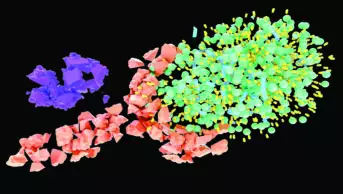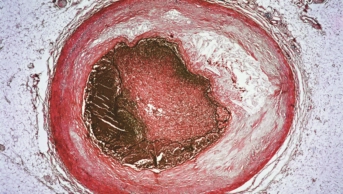
Maurizio de Angelis / Science Photo Library
Many patients with hypercholesterolaemia do not achieve their recommended low-density lipoprotein cholesterol (LDL-C) target level despite treatment with statins.
In a systematic review, researchers looked at data from 21 phase III trials of the anti-PCSK9 monoclonal antibodies alirocumab and evolocumab for the treatment of hypercholesterolaemia. The data was from over 10,000 patients, most of whom received a PCSK9 inhibitor in addition to statins.
The team found that up to 87% of patients who received alirocumab and up to 98% who received evolocumab reached their LDL-C target when the antibodies were taken with statins, while 42–84% of patients who received antibodies as monotherapy achieved their LDL-C target.
Reporting in the British Journal of Clinical Pharmacology
[1]
(online, 4 October 2016), the researchers say the findings show that anti-PCSK9 antibodies can help patients with high cardiovascular risk achieve their LDL-C targets both as add-on therapy or as monotherapy for patients unable to tolerate statins.
References
[1] Gouni-Berthold I, Descamps OS, Fraass U et al. Systematic review of published phase III data on anti-PCSK9 monoclonal antibodies in patients with hypercholesterolaemia. British Journal of Clinical Pharmacology 2016. doi: 10.1111/bcp.13066.


